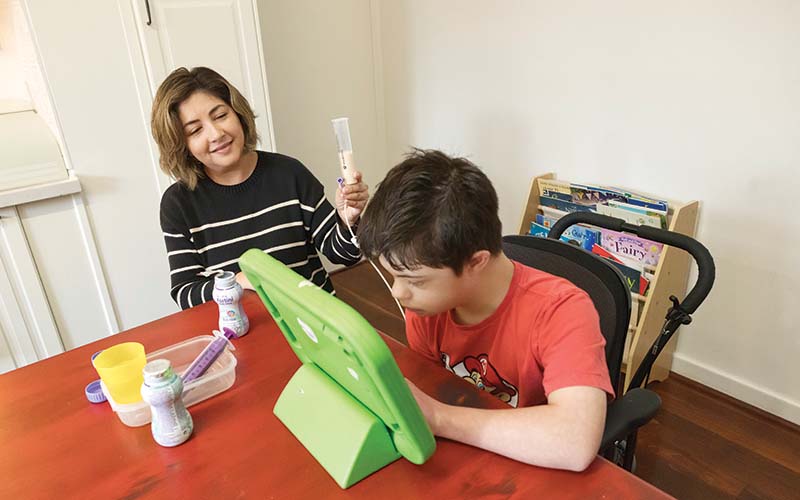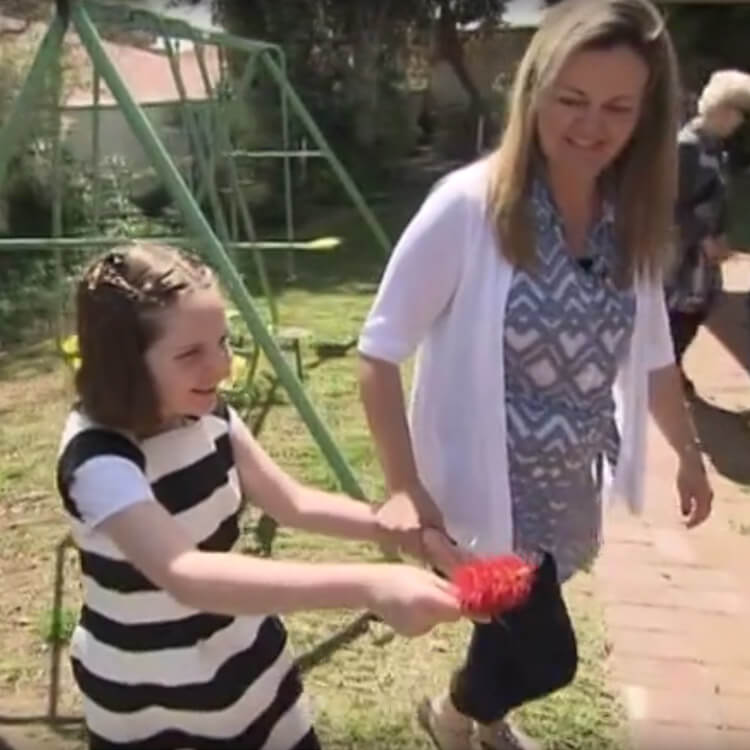Search
Research
How Families Manage the Complex Medical Needs of Their Children with MECP2 Duplication SyndromeMECP2 duplication syndrome (MDS) is a rare, X-linked, neurodevelopmental disorder resulting from the duplication of the methyl-CpG-binding protein 2 (MECP2) gene. The clinical features of MDS include severe intellectual disability, global developmental delay, seizures, recurrent respiratory infections, and gastrointestinal problems. The aim of this qualitative study was to explore how the parents of children with MDS manage their child's seizures, recurrent respiratory infections, and gastrointestinal symptoms, and the impact on them as parents.
Research
Severe Congenital Heart Defects and Cerebral PalsyTo report the prevalence of cerebral palsy (CP) in children with severe congenital heart defects (sCHD) and the outcome/severity of the CP.
Research
Down syndrome or Rett syndrome in the family: Parental reflections on sibling experienceSiblings of children with intellectual disability have unique family experiences, varying by type of disability.
Research
Can Wearable Inertial Measurement Units Be Used to Measure Sleep Biomechanics? Establishing Initial Feasibility and ValidityWearable motion sensors, specifically, Inertial Measurement Units, are useful tools for the assessment of orientation and movement during sleep. The DOTs platform (Xsens, Enschede, The Netherlands) has shown promise for this purpose. This pilot study aimed to assess its feasibility and validity for recording sleep biomechanics.

For thousands of children around Australia with intellectual and other disabilities, the process of eating can be traumatic, posing challenges that veer from uncomfortable to life threatening.
Research
Communication of individuals with CDKL5 deficiency disorder as observed by caregivers: A descriptive qualitative studyCDKL5 deficiency disorder (CDD) is a genetically caused developmental epileptic encephalopathy that causes severe communication impairments. Communication of individuals with CDD is not well understood in the literature and currently available measures are not well validated in this population. Accurate and sensitive measurement of the communication of individuals with CDD is important for understanding this condition, clinical practice, and upcoming interventional trials.
Research
Harnessing neuroplasticity to improve motor performance in infants with cerebral palsy: A study protocol for the GAME randomised controlled trialCerebral palsy (CP) is the most common physical disability of childhood worldwide. Historically the diagnosis was made between 12 and 24 months, meaning data about effective early interventions to improve motor outcomes are scant. In high-income countries, two in three children will walk. This evaluator-blinded randomised controlled trial will investigate the efficacy of an early and sustained Goals-Activity-Motor Enrichment approach to improve motor and cognitive skills in infants with suspected or confirmed CP.
Research
Individual-Level Risk and Resilience Factors Associated with Mental Health in Siblings of Individuals with Neurodevelopmental Conditions: A Network AnalysisSiblings of individuals with neurodevelopmental conditions (NDCs) are exposed to unique family environments and experience a range of psychosocial risk and resilience factors.

News & Events
Perth researchers unlocking mystery of rare seizure diseaseResearchers at The Kids Research Institute Australia are one step closer to finding better treatments for a rare disease causing children to have multiple seizures a day.
Research
Can telehealth increase physical activity in individuals with Rett syndrome? A multicentre randomized controlled trialTo evaluate the effects of a physical activity programme on sedentary behaviour and physical activity in ambulant individuals with Rett syndrome.
